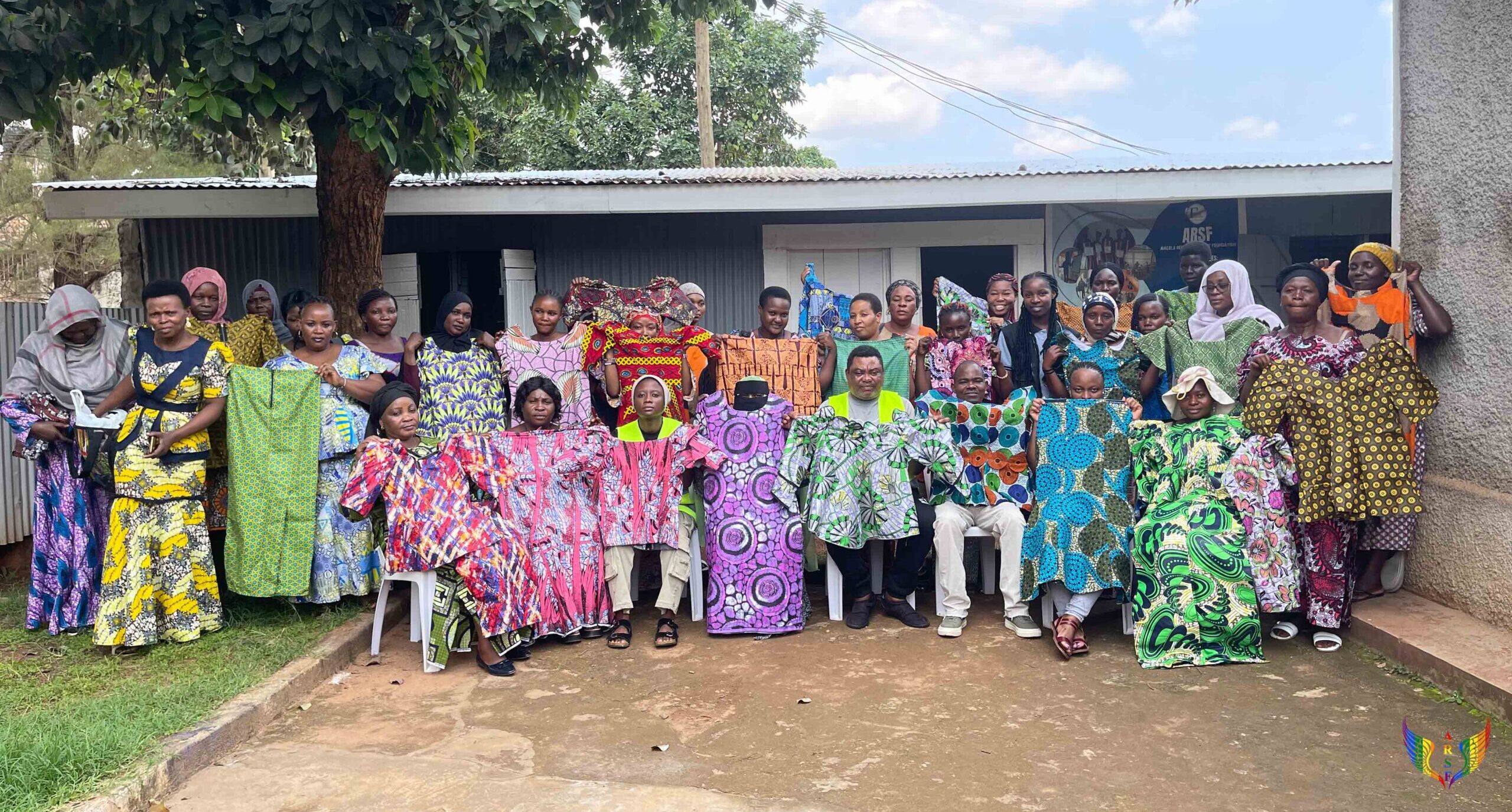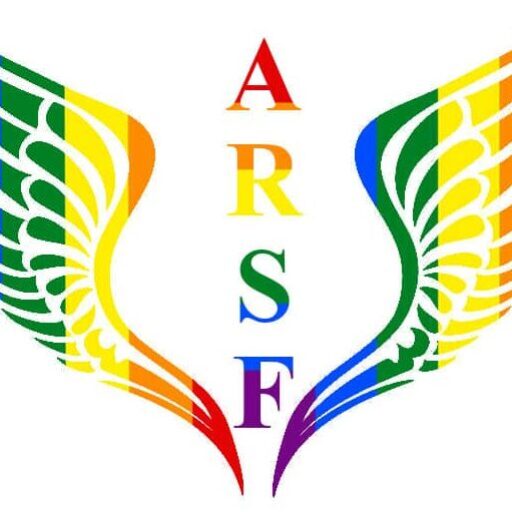
At Angles Refugee Support Foundation (ARSF), we believe in restoring dignity and self-reliance among refugees and their host communities. Forced displacement disrupts lives and strips individuals—many of whom were once professionals—of their ability to thrive. Language barriers, unemployment, and cultural dislocation make resettlement even more difficult.
As a refugee-founded and refugee-led organization, ARSF understands these challenges intimately. That’s why, with the support of generous partners, we launched a vocational training program in tailoring, garment making, and fashion design. This initiative equips vulnerable women—primarily aged 30–60—with practical skills to rebuild their lives and support their families.
We invite you to join us in this mission. Whether through partnership or support, your involvement can make a lasting impact in the lives of those living through protracted displacement.



Forced displacement due to violent conflict, war, and extremism has become an enduring crisis globally, affecting millions of people who are uprooted from their homes and thrust into uncertainty. The process of fleeing one’s homeland is not only traumatic but also deeply disruptive. It severs people from their communities, identities, and livelihoods. When these individuals cross international borders in search of safety, they carry with them memories, pain, and often an urgent need to rebuild their lives from scratch.
In Uganda—one of the world’s most generous refugee-hosting countries—this challenge plays out on a large scale. Refugees arrive in search of sanctuary, but the journey to stability is filled with obstacles. Many of them were once skilled professionals: doctors, teachers, engineers, journalists, civil servants, and entrepreneurs. In their new environment, however, they are often viewed solely through the lens of vulnerability. Asylum seekers, undocumented migrants, or officially registered refugees, these individuals must start over, often without the tools or support needed to thrive.
Language is a significant barrier. Uganda is an English-speaking country, but many refugees come from regions where other languages dominate. This communication gap makes it hard to access services, find employment, or even engage in everyday tasks like shopping, navigating transport, or visiting a health facility. Add to this the trauma of displacement, cultural disorientation, and economic strain, and the result is a severe struggle to regain any sense of normalcy.
Recognizing these immense challenges, Angles Refugee Support Foundation (ARSF) stepped in with a mission rooted in empathy, experience, and resilience. ARSF is not just another humanitarian organization—it is a refugee-founded and refugee-led initiative. Our leadership and team members understand the refugee experience personally, having lived through it themselves. This lived experience gives ARSF a unique and authentic perspective on the needs of forcibly displaced people and the practical ways to support them.
In response to the widespread unemployment and livelihood challenges facing refugees and vulnerable host community members, ARSF launched a vocational training project in Kampala, Uganda’s capital. With support from compassionate donors and partners both locally and internationally, this initiative equips participants with hands-on skills in tailoring, garment making, and fashion design.
Our aim is not just to offer a training course—but to restore dignity and rebuild hope. By teaching practical skills that can lead to income-generating opportunities, we empower participants to take control of their futures and provide for their families. The impact of this project extends beyond individual success stories. It also promotes peaceful coexistence by including members of the host communities in the program, fostering understanding and unity.
The participants in our training program are primarily women aged 30 to 60 years—many of whom are single mothers or caregivers. They are individuals who bear the weight of responsibility not just for themselves but for children, elders, and extended family. For these women, acquiring vocational skills is more than professional development—it is a lifeline. Through training, they rediscover their self-worth, gain confidence, and become active contributors to their communities.
Since its inception, the vocational training program has steadily grown. Initially launched on a small scale, it has seen a significant expansion in 2025, allowing more people to benefit from its offerings. ARSF has worked hard to maintain the quality of the training, ensuring that participants receive not only technical instruction but also mentorship, psychosocial support, and guidance on how to start and sustain small businesses after graduation.
The training environment at ARSF is intentionally inclusive, supportive, and empowering. We create safe spaces where refugees and hosts can share experiences, learn together, and build bonds that transcend nationalities and past trauma. The photos and stories coming out of our centers in Kampala are a testament to the transformation happening every day. Women who once felt lost or hopeless are now proudly showcasing their self-made clothing, taking orders from customers, and making plans to open their own tailoring businesses.
But the journey doesn’t stop at vocational training. ARSF is committed to long-term impact. We follow up with our graduates, helping them navigate market entry, connect with micro-finance institutions, and explore opportunities for further education or advanced training. We believe that sustainable development comes from empowerment, not dependency, and everything we do is aimed at building the capacities of those we serve.
We are also keenly aware of the value of partnership. Our work is made possible through the generosity of individuals, organisations, and institutions who believe in the potential of refugees and are willing to invest in their futures. Whether through funding, volunteering, or advocacy, our partners are essential to sustaining and scaling this impactful work.
In a world where forced displacement is often portrayed through the lens of tragedy, we offer a counter-narrative—one of resilience, talent, and hope. Refugees are not helpless victims; they are resourceful individuals capable of rebuilding their lives and enriching the communities they join. What they need are opportunities, tools, and a chance to be seen for who they are: survivors, professionals, parents, and change-makers.
To all who visit our page, we extend a warm invitation: join us in making a difference. Whether you want to support a few trainees, contribute to scaling the program, or simply learn more about the realities and potential of displaced communities, we are here to engage and collaborate.
Let us work together to ensure that forced migration does not mark the end of possibility, but the beginning of new purpose and strength.
For More Information or To Get Involved:


